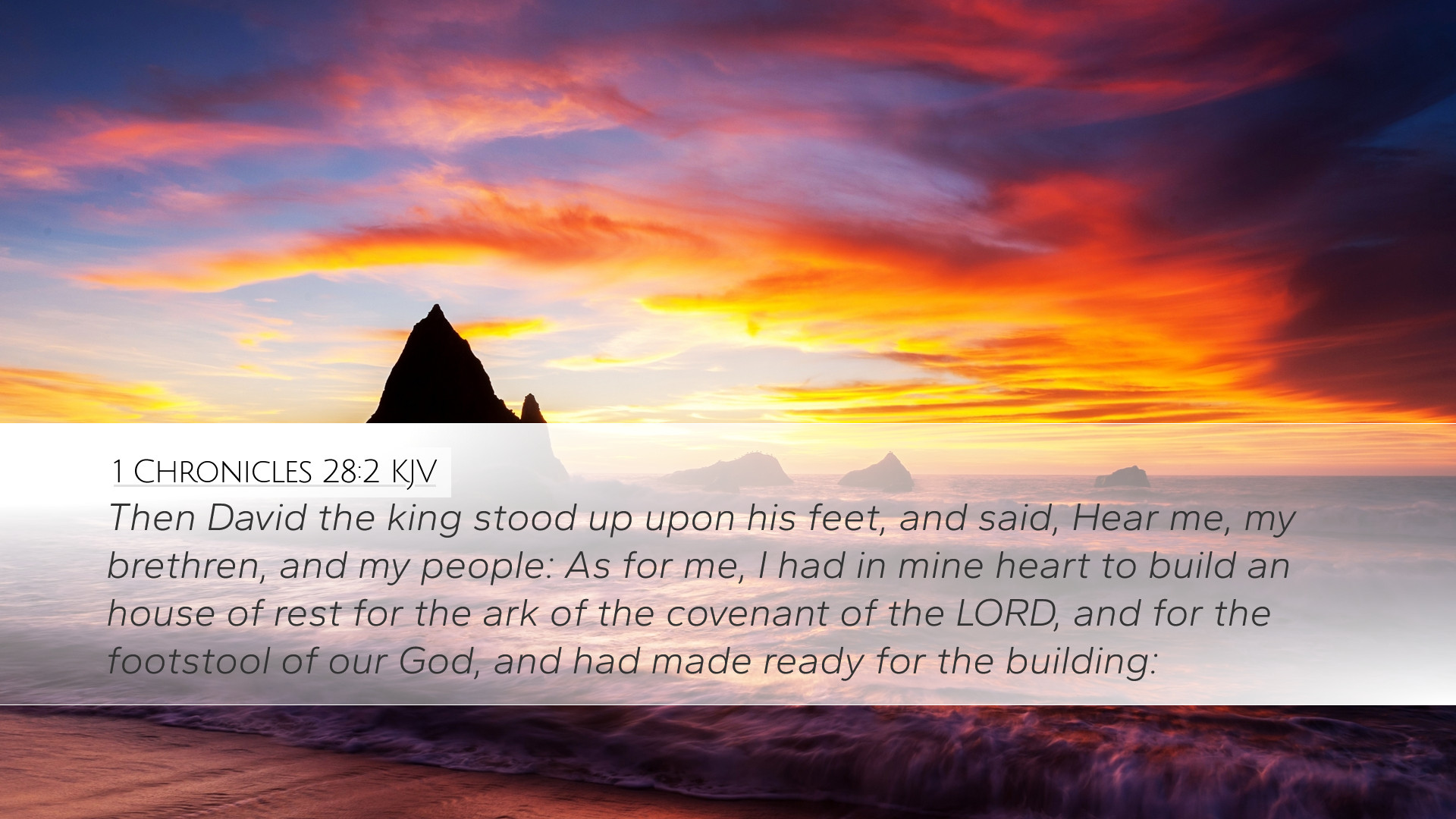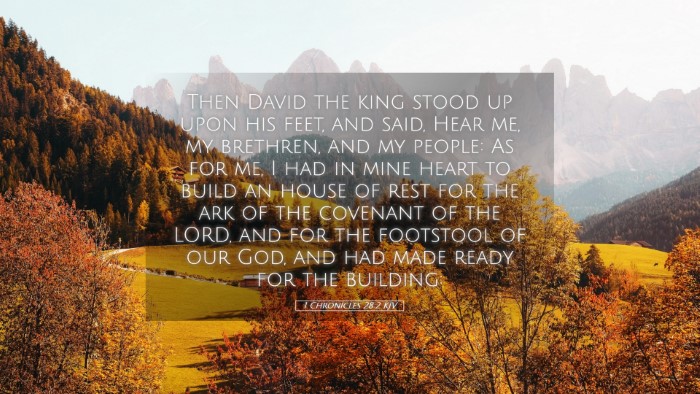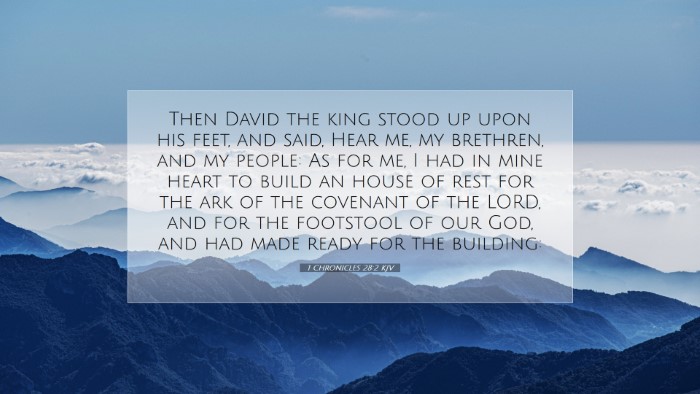Commentary on 1 Chronicles 28:2
In 1 Chronicles 28:2, we witness a pivotal moment in the history of Israel during King David's reign. This verse captures David’s call to gather the leaders of Israel and make a profound declaration about the temple's construction—a significant task that holds deep theological implications for Israel's identity and worship.
Contextual Background
Before delving into the commentary, it is vital to consider the larger context. After a life filled with military successes, personal failures, and deep devotion to God, David prepares to pass the mantle of leadership to his son Solomon. The temple represents God’s dwelling among His people, a focal point for worship, and signifies the establishment of a permanent place for offering sacrifices. This moment signals both an end and a beginning in the narrative of Israel’s covenant relationship with God.
Verse Analysis
1 Chronicles 28:2 (ESV): "Then King David rose to his feet and said: 'Hear me, my brothers and my people. I had it in my heart to build a house of rest for the ark of the covenant of the Lord and for the footstool of our God, and I made preparations for building.'
- David's Reclamation of Vision: The phrase "I had it in my heart" showcases David's personal conviction and divine inspiration. Matthew Henry notes that this intimate desire illustrates the importance of personal aspiration aligned with God’s will.
- Community Engagement: By addressing "my brothers and my people," David emphasizes communal involvement in this sacred task. Adam Clarke stresses that the involvement of the leaders and the people highlights a collective responsibility in worship and service to God.
- Symbolism of the Ark: The “ark of the covenant” symbolizes God's presence among His people. Albert Barnes comments on the significance of the ark as a vessel of divine promise. Its eventual resting place in the temple establishes a permanent reality of God’s presence among Israel.
Theological Significance
This verse encapsulates several deep theological themes:
- Divine Presence: David’s intention to build a temple reflects humanity’s yearning to connect with the divine—a yearning that God fulfills through His covenant, which offers believers a place to encounter His holiness.
- Leadership and Succession: David’s actions provide a model for leadership transition. Clarke emphasizes the importance of preparation and passing down the vision of God’s plan to the next generation.
- Sacred Space: The temple transcends a mere building; it becomes a symbol of communal identity and a sacred space where the people can gather to worship, reaffirming their identity as God’s chosen people.
David’s Preparation
Importantly, David did not merely verbalize his desire; he took practical steps to prepare for its realization. This preparation involved:
- Financial Provisions: David appropriated resources for the construction, highlighting the necessity of ensuring that God's work can progress through adequate readiness.
- Spiritual Vision: David's vision for the temple extended beyond its physical structure; it involved a comprehensive plan for worship, priesthood, and the nation's spiritual life.
- Covenantal Responsibility: David understood that constructing the temple was part of a larger covenantal context—a commitment to uphold the laws and commandments of God, thus reinforcing the practice of fidelity among the people.
Lessons for Today
The insights gleaned from 1 Chronicles 28:2 have timeless relevance. For pastors, students, and theologians, the verse encourages:
- The Importance of Vision: Just as David had a vision for God's dwelling, modern leaders must foster spiritual aspirations that honor God and engage communities in service and worship.
- Community Involvement: Engaging with the community in church and ministry work is vital. Leaders should cultivate a culture of inclusivity and collective purpose, emphasizing that every member has a role to play in God's plan.
- Preparation and Dedication: David’s preparation models diligence and foresight in ministry. Leaders should dedicate resources—time, talents, and finances—to ensure their ministries are both sustainable and impactful.
Conclusion
In conclusion, 1 Chronicles 28:2 serves as a compelling reminder of the ideal interplay between personal conviction, community involvement, and divine purpose. David's assembled congregation signifies a powerful moment of collective allegiance to God’s covenant and underscores the importance of spiritual leadership. The insights provided by Matthew Henry, Albert Barnes, and Adam Clarke not only illuminate the text but also inspire contemporary believers towards a committed and collaborative pursuit of God's glory.


